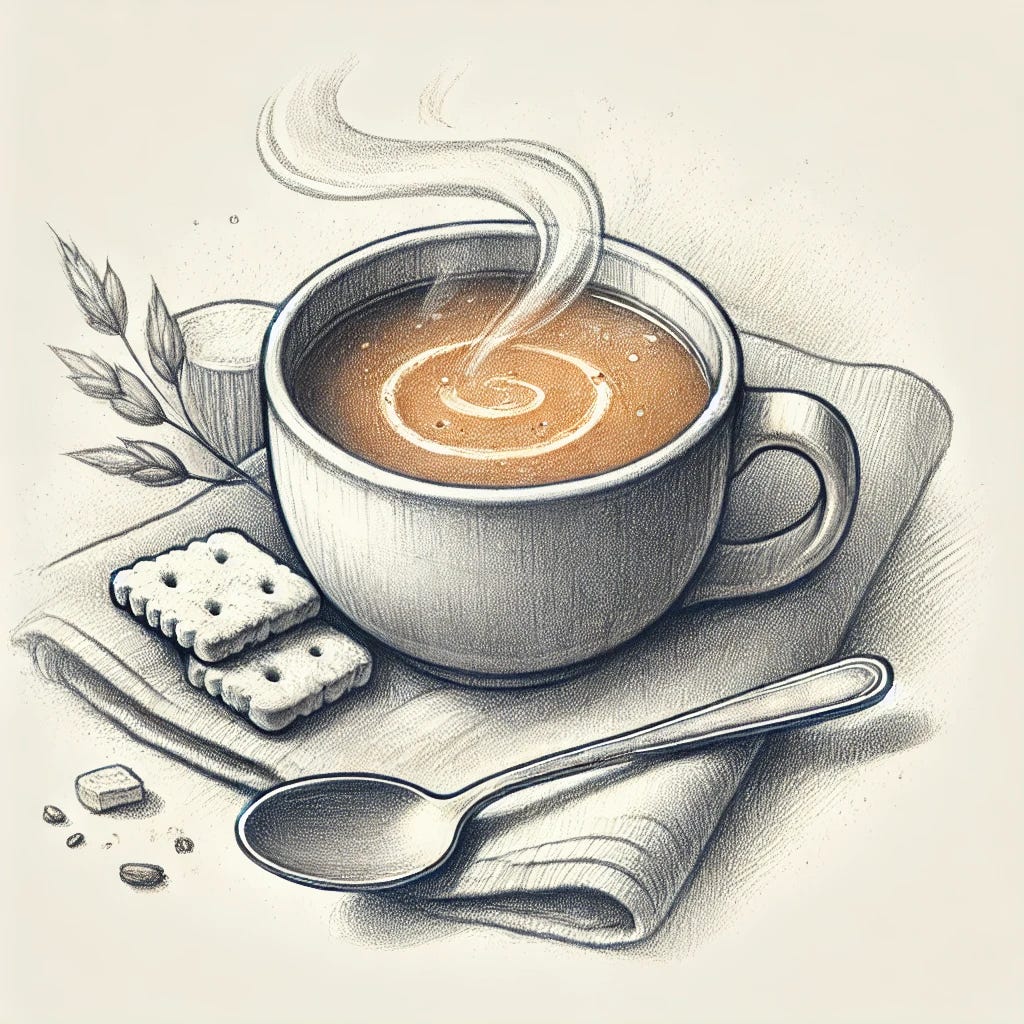Rethinking "Food Freedom" (Because It’s More Than a Catchy Phrase)
It’s not about the term—it’s about finding ease and connection
Let’s Talk About “Food Freedom” (Even Though I Don’t Love the Term)
If I’m being honest, I don’t really like the term food freedom. It feels too simple for something so layered, so complex. It’s catchy, sure, but it also paints a picture that the journey toward peace with food is this neat, linear path with a shiny, idealized endpoint.
For many of us, that’s not the reality.
The truth is, I still struggle to find the right words to describe what this work actually feels like. It’s not a perfect finish line where food magically becomes easy all the time. Instead, it’s more like learning a new language—one that’s unfamiliar at first, full of mistakes, but eventually starts to feel natural and even empowering.
So, while I might not love the term food freedom, I think it’s worth unpacking what it could mean—and more importantly, what it could feel like in practice. Because whatever you call it, this process is about finding a way to live where food doesn’t dominate your mental energy or your self-worth. It’s about connection, curiosity, and joy.
What It’s Really About
When I think about food freedom, I don’t picture a life where food is effortless 24/7. Instead, I imagine moments where the noise around food is turned way down. It’s not about “perfect balance,” choosing the right thing every time, or being perfect. It’s about creating more space in your life for things that matter to you—beyond calories, rules, or guilt.
Here’s what that can look like:
Eating without overthinking. You’re at a family barbecue, and instead of spending half the time calculating whether you’ve “earned” a second helping, you’re just enjoying the conversation and the food and serving yourself whatever food you want.
Trusting your body’s cues. You’re hungry, so you eat. Even if you just ate an hour ago or if you’re going to eat dinner soon. You’re full, so you stop or eat a little more because the food tastes so good. You have permission to eat more if you want.
Savoring the experience. Whether it’s your morning coffee, a warm bowl of soup, or a piece of cake, you allow yourself to enjoy food—not as a reward or a cheat, but simply as part of being human.
What It Feels Like
The shift doesn’t happen all at once, and it doesn’t mean you’ll never have a tough moment with food again. But over time, it feels like:
Relief. The endless mental gymnastics about food and your body start to loosen their grip.
Presence. You’re more focused on the people you’re eating with, the memories you’re making, or the flavors you’re tasting than on what you’ll eat tomorrow to “make up for it.”
Freedom to evolve. Some days, food feels like fuel. On other days, it’s comfort. Both are okay.
Why This Work Matters
I get it—letting go of food rules can feel overwhelming. Diet culture has probably told you for years that structure equals safety and freedom equals chaos. But here’s the thing: true freedom doesn’t mean throwing all caution to the wind. It means showing up for yourself in a way that’s flexible and compassionate.
It’s also messy. Some days, you’ll get it right. Other days, you won’t. But you’re not a failure on those more challenging days—you’re human. And food freedom, or whatever we decide to call it, is about learning to embrace that humanity.
Where Do You Start?
If you’re unsure where to begin, here’s one small step: the next time you’re eating, pause and ask yourself, How does this food make me feel? Not in a moral sense but in a physical or emotional sense. Does it energize you? Comfort you? Is it something you love or something you’re eating just because it’s “safe”?
The goal isn’t to judge yourself—it’s to get curious. That curiosity is the foundation of whatever freedom looks like for you.
Maybe food freedom isn’t the perfect term, but it’s a starting point for a much bigger conversation. What would it look like to feel just a little more at ease with food? I’d love to hear your thoughts in the comments.




Super thoughtful entry and such a great way to put in words the journey I’ve been on the last several years. Your wisdom continues to be needed, Aaron, thank you.